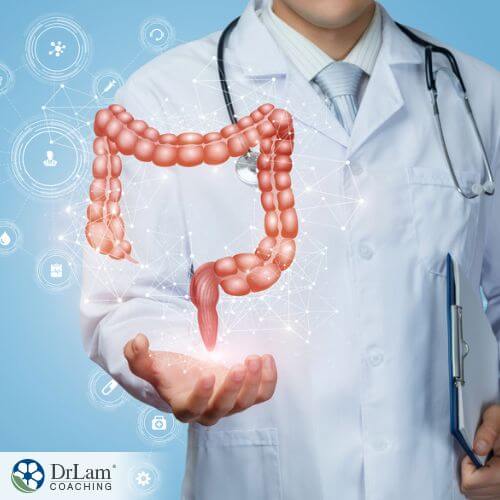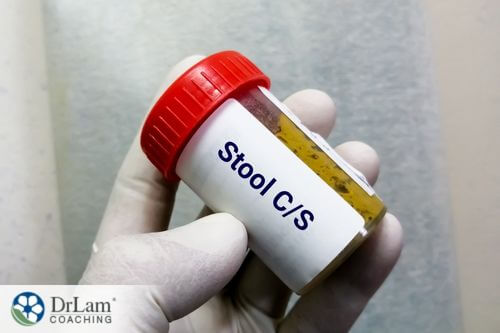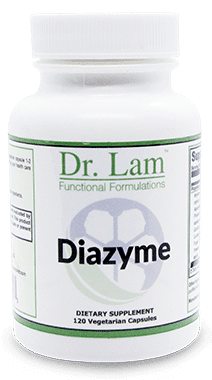 Gut health is a popular topic of conversation in wellness circles. Research is increasingly showing that poor gut health is a cause of many different symptoms and health conditions. But what exactly is gut health? How do you know when you have poor gut health? And what can you do about it? This article will explore what gut health is and how to improve it.
Gut health is a popular topic of conversation in wellness circles. Research is increasingly showing that poor gut health is a cause of many different symptoms and health conditions. But what exactly is gut health? How do you know when you have poor gut health? And what can you do about it? This article will explore what gut health is and how to improve it.
When you first hear the word "gut", you may think of your intestines and stomach, but your gut is a lot more than just these two parts. Your gut includes your:
The gut is a name that refers to the part of the body that digests food, absorbs nutrients, and excretes waste products. Though the stomach is the main part of the body responsible for digesting food, it is not the only part of the body that is responsible for digestion.
Digestion starts in the mouth, with your saliva and your teeth. Your saliva contains substances called enzymes that help to start chemically breaking down food. Meanwhile, your teeth start to mechanically break down food.
When you swallow the food, it travels down the esophagus and into the stomach. Here, your stomach churns the food, further breaking it down mechanically, and secreting substances that break it down further chemically.
Once the stomach finishes digesting the food, it travels through to the small intestine and then the large intestine. The intestines are responsible for absorbing the nutrients from food, with the small and large intestines responsible for absorbing different nutrients.
After the food has traveled through the large intestine, it moves on to the colon, where it absorbs water and electrolytes. This turns what is left of the food into stool, and your body passes it out.
The foundation of gut health is the gut microbiome. This refers to the bacteria, also called microbes, that reside in your gut.
Microbes line all parts of your gut, starting in the mouth and ending with the anus. These microbes have an important role in maintaining your health. The main roles of microbes are:
Whilst there are beneficial microbes in your gut, there are also harmful microbes. For optimal gut health, there should be a higher ratio of beneficial microbes than harmful microbes. However, when this ratio is reversed, it can cause symptoms such as:
Your gut plays many different roles in your body and is vital for optimal health. It plays a role in:
Many different causes can result in poor gut health and an imbalance between the ratio of beneficial to harmful bacteria. These causes will place the individual at risk for developing poor gut health; these include:
There are a few ways to check for a potential gut health problem.
Your tongue is one of the first parts of your body that starts the digestion process and can be a useful tool for discerning your gut health. A healthy tongue should be a pinkish color and have a thin white coating on top.
Bacteria, dead cells, and food components such as sugar can cause a thick white coating on your tongue. This is a warning sign that your gut is overworked.
On the other end of the spectrum, if your tongue is pink with no coating, it may be a sign that your gut is exhausted, and there is not enough digestive fluid.
 Stool can give important clues about your gut health. If your gut is healthy, your stool will be a medium to dark brown color, smooth looking, a soft sausage shape that is either in one piece or a smaller piece, and it should sink to the bottom of the toilet.
Stool can give important clues about your gut health. If your gut is healthy, your stool will be a medium to dark brown color, smooth looking, a soft sausage shape that is either in one piece or a smaller piece, and it should sink to the bottom of the toilet.
If however, your stool is a dark black color with an oily appearance that floats in the toilet, is very foul smelling, is hard and lumpy, or is in a liquid form, it may be a sign of poor gut health.
Another sign of gut health is in how often you poop. Although this depends on the individual, it's healthy to have a bowel movement between three times a week and three times a day. If this amount is higher or lower than this range, your gut may not be happy.
It is also important to note that when you poop, it should be pain-free. If there is pain, it could be a sign of poor gut health in the form of constipation, food intolerances, or irritable bowel syndrome (IBS).
If you are having symptoms of poor gut health, there are several strategies you can use to turn your gut health around.
This is a useful strategy for when you are trying to increase the number of beneficial microbes in your gut. Probiotics refer to beneficial bacteria or microbes, and these can help to repopulate your gut with good bacteria. Probiotics can be taken in the form of supplements, but they are also naturally found in fermented food products such as:
Whilst probiotics are the bacteria, prebiotics is the food for the bacteria and helps to ensure that the beneficial microbes can grow and multiply in your gut. Prebiotics are naturally found in:
This makes it important to include a variety of these food products in your diet. Not only are they tasty, but they provide important fuel for your microbes.
This sweet ingredient has a not-sweet effect on your gut and can cause an imbalance in your gut microbiome. Whilst turning to an alternative sweetener may seem like the best option, sweeteners have also been shown to disrupt the microbiome. Instead, opt for a food that is naturally sweet such as fruit. This will help satisfy the sugar craving as well as provide fuel to your microbes.
Alcohol not only kills your beneficial bacteria but can also damage the cells of your gut, further reducing gut health. To help keep the integrity of your gut, it is best to reduce your alcohol consumption and keep to a moderate intake if you do drink. This means no more than two drinks for males and one drink for females.
Your gut thrives off fuel in the form of the food you consume. When you start to skip meals, your gut can become stressed. If this occurs for a long period, it can cause a change in hormones and an increase in inflammation that can cause damage to your gut cells and reduce the beneficial bacteria through the changes in hormones.
Eating small frequent meals, especially at the same time every day, can help to prevent your gut from becoming distressed.
 Many of us overeat, but this can cause an imbalance in your gut hormones. To avoid overeating, it is important to be present when you eat and avoid multitasking. This will help you notice the clues your body gives to signify that it is full. Some signs that you are full include feeling slightly uncomfortable, eating more slowly, putting your fork or spoon down during the meal, and belching.
Many of us overeat, but this can cause an imbalance in your gut hormones. To avoid overeating, it is important to be present when you eat and avoid multitasking. This will help you notice the clues your body gives to signify that it is full. Some signs that you are full include feeling slightly uncomfortable, eating more slowly, putting your fork or spoon down during the meal, and belching.
Also, try to ensure that when you eat, you eat in a peaceful, serene environment with minimal distractions. This means switching the TV off and switching off your computer to enjoy your meal and the people around you. This will not only reduce any form of stress but will also help you become more present during eating.
Many of us mistake boredom or thirst for hunger, but what is hunger? Everybody will show hunger differently but some common signs are a growling stomach, thinking constantly of food, and trouble concentrating. If you suspect you are hungry, try drinking a full glass of water and waiting fifteen minutes. It's important to be mindful and eat only when you're hungry; this will help prevent overeating.
Getting active has many effects on your health, including gut health. Studies suggest that exercise can help to promote the growth of beneficial bacteria. Beneficial bacteria produce many beneficial substances, and one substance they produce is butyrate. This is a fatty acid that helps to reduce inflammation in the gut and can help to repair any damage to the gut. The more beneficial bacteria you have in your body, the more butyrate the bacteria can produce.
For optimal health as well as a healthy gut, exercise recommendations are 150 minutes of moderate exercise per week, with two of the days focused on muscle strengthening.
You may think that your mental health is just confined to your head, but it affects your gut in many different ways. Stress, anxiety, and depression can affect the ratio of beneficial to harmful bacteria through changes in hormones. It can also affect the health of your gut cells as the changes in hormones can lead to an increase in inflammation which can cause damage to cells. Chronic stress can also affect your gut.
Adrenal Fatigue Syndrome (AFS) is a condition that refers to a cluster of symptoms that occur due to chronic stress. In short-term stress, your body responds to stress through your adrenal glands as well as your NeuroEndoMetabolic (NEM) Stress Response System. Your adrenal glands are the first to respond to stress and release stress hormones in response.
When the stress persists, your adrenal glands can become depleted, and this results in imbalances occurring in the NEM system. There are six circuits of related organ systems in the NEM, and one of these circuits is the Inflammation circuit.
Your immune system, gastrointestinal tract, and microbiome make up the Inflammation circuit and are responsible for managing the inflammation in your body. Some bodily signs that occur when there is an imbalance in this circuit are food sensitivities, IBS, and leaky gut. These are both signs of poor gut health. A leaky gut refers to when your gut's physical defense system starts to reduce and water, nutrients, and waste products can pass out of the gut. Many of these conditions can be improved by taking better care of your gut and reducing stress.
 If you are experiencing AFS and poor gut health, it is important to build up your gut health. However, it is also important to be mindful of how you build up your gut's health. Gut supplements such as probiotics can be useful to replenish the beneficial bacteria in your gut, but before you try probiotic supplements, chat with your healthcare provider. In AFS your body can become very sensitive to any new products introduced to the body, including supplements. This can result in your body reacting negatively and setting you back in your recovery.
If you are experiencing AFS and poor gut health, it is important to build up your gut health. However, it is also important to be mindful of how you build up your gut's health. Gut supplements such as probiotics can be useful to replenish the beneficial bacteria in your gut, but before you try probiotic supplements, chat with your healthcare provider. In AFS your body can become very sensitive to any new products introduced to the body, including supplements. This can result in your body reacting negatively and setting you back in your recovery.
Probiotic supplements are also not regulated by the FDA and the quality of ingredients is not guaranteed. If a probiotic is needed, your healthcare provider can guide you toward a probiotic that will support your body and reduce the chances of your body reacting negatively.
Good gut health is crucial for optimal health and wellness. Poor gut health can result in many symptoms and can lead to conditions such as IBS. To help build up your gut health, it is important to focus on:
And for those grappling with adrenal fatigue, Dr. Lam's Adrenal Fatigue Recovery Program offers a comprehensive solution. By incorporating diet modifications, meditation techniques, exercise routines, and targeted supplementation, this program guides individuals toward natural recovery without the need for doctor visits, costly medical tests, or prescriptions. With Dr. Lam's firsthand experience and expertise, this educational program equips participants with the tools to successfully navigate their adrenal fatigue journey, steering clear of common pitfalls and optimizing their path to recovery.

Revitalize with Diazyme: Nurture Gut for Optimal Nutrition!
It can take anywhere from four weeks to six months to recover from poor gut health. Recovery time is dependent on the individual and depends on multiple factors. If you are looking to heal your gut, you can begin by taking steps to support your overall health and seeking out a supportive health professional who takes your history into account.